Are the sustainability criteria in the Swiss trade deal with Indonesia toothless?
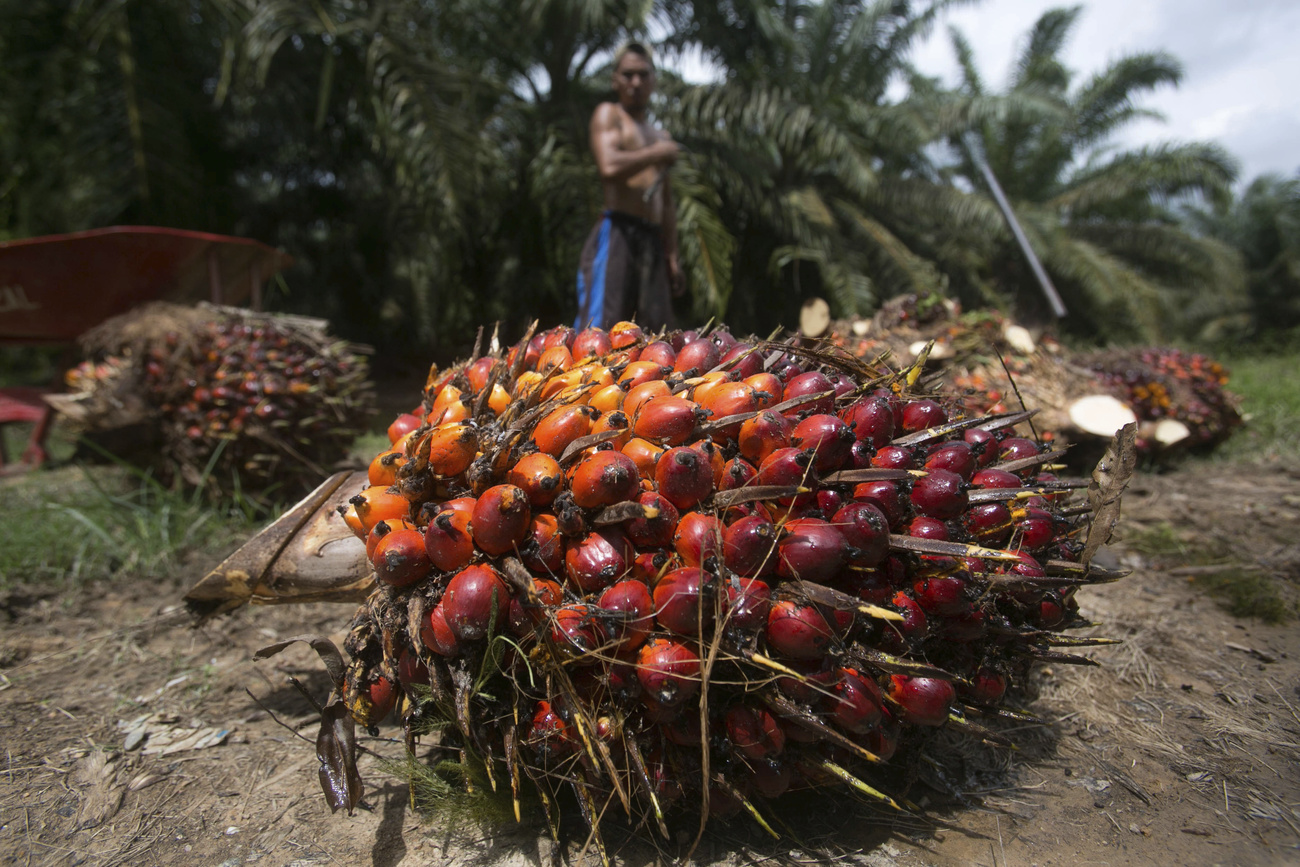
A free trade agreement with Indonesia has sparked backlash and Switzerland’s first national referendum on palm oil imports. On the eve of the vote to take place March 7, SWI swissinfo.ch fact checks claims on sustainability.
At the end of 2018, Switzerland – as part of the European Free Trade Association (EFTA) block that also includes Norway, Iceland and Liechtenstein – signed a free trade deal with Indonesia. Under the terms agreed, eventually 98% of Swiss exports to the island nation would be exempt from customs duty. In return, among other commodities, Indonesia would be able to export 10,000 tonnes of palm oil annually (and up to 12,500 tonnes at the end of five years) and related products at reduced tariffs of between 20% to 40%.

The deal has not come into effect as it has been blocked by Switzerland’s direct democracy system. The so-called “Stop Palm Oil” referendum committee – a coalition of civil society and agricultural groups – wants to exclude palm oil from the free trade deal altogether because of environmental and labour concerns in Indonesia. The government, for its part, is highlighting the sustainability clauses incorporated in the deal, which allow only sustainable palm oil to be eligible for tariff reductions – a first for any free trade agreement concluded by Switzerland.
One of the main arguments used by the referendum committee for rejecting the “nefarious” free trade deal is that the sustainability criteria for palm oil imports are a mere fig leaf.
“The sustainability criteria in the agreement will have no effect,” the activists claim on their campaign website, referring specifically to deforestation. To date, 17 million hectares of tropical forests have been cut down for palm oil production, they say. “There are no effective verification mechanisms and virtually no sanctions for violations” of the criteria in the trade agreement, they add.
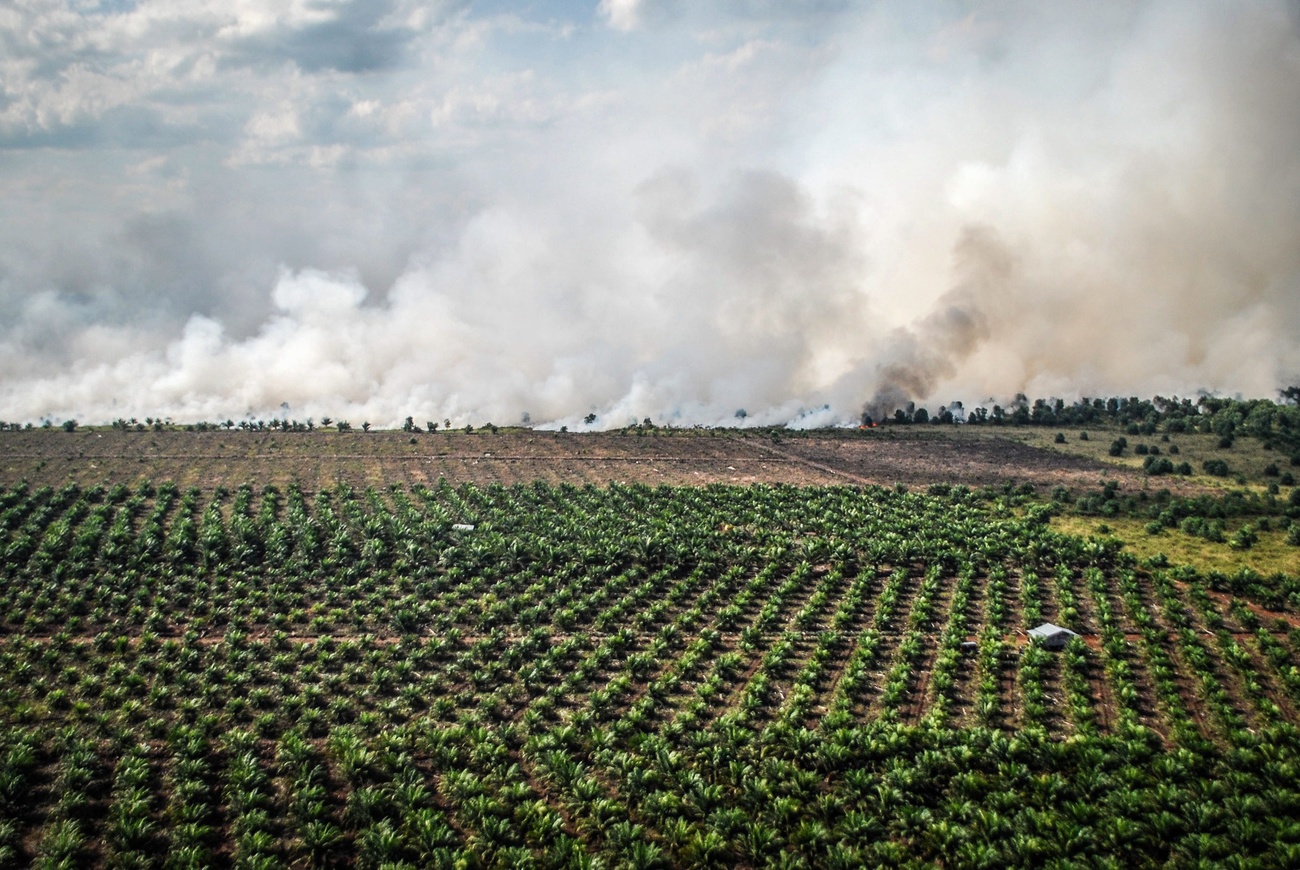
More
Indonesia’s palm oil angers Swiss anti-globalisation activists
Do these claims hold any water? SWI swissinfo.ch weighs the evidence.
No effective verification?
To see if the sustainability criteria will have any effect, it is first necessary to examine any verification and sanction measures being proposed by the government.
An information sheet prepared by the Federal Department of Economic Affairs sheds some light on how Switzerland intends to ensure that palm oil imported from Indonesia will be deforestation-free. The document states that the Swiss importer must show proof that the product is sustainable to benefit from reduced tariffs.
How is the importer to determine that forests have not been felled to supply the palm oil consignment to Switzerland? The easiest option is to purchase Indonesian palm oil which has been certified as sustainable by third parties. There are many certification schemes an importer can choose from, with each one giving slightly different weight to various factors, such as child labour, fair wages or biodiversity.
The initiators of the referendum are skeptical about these certification schemes, especially the biggest and most well-known one: The Round Table on Sustainable Palm Oil (RSPO). They point out that the RSPO is “dominated by palm oil producers [and] has been the subject of controversy for years.” However, most of the criticism targeting RSPO has been levelled at the more affordable versions of its certification (mass balance and book & claim) that do not keep palm oil from certified sources separate from ordinary palm. The versions selected for the trade deal are the premium versions that do make a distinction between the two. That said, RSPO has yet to completely answer long-standing criticism about its certification standards, low threshold for membership, and limited sanctions for members who violate guidelines.
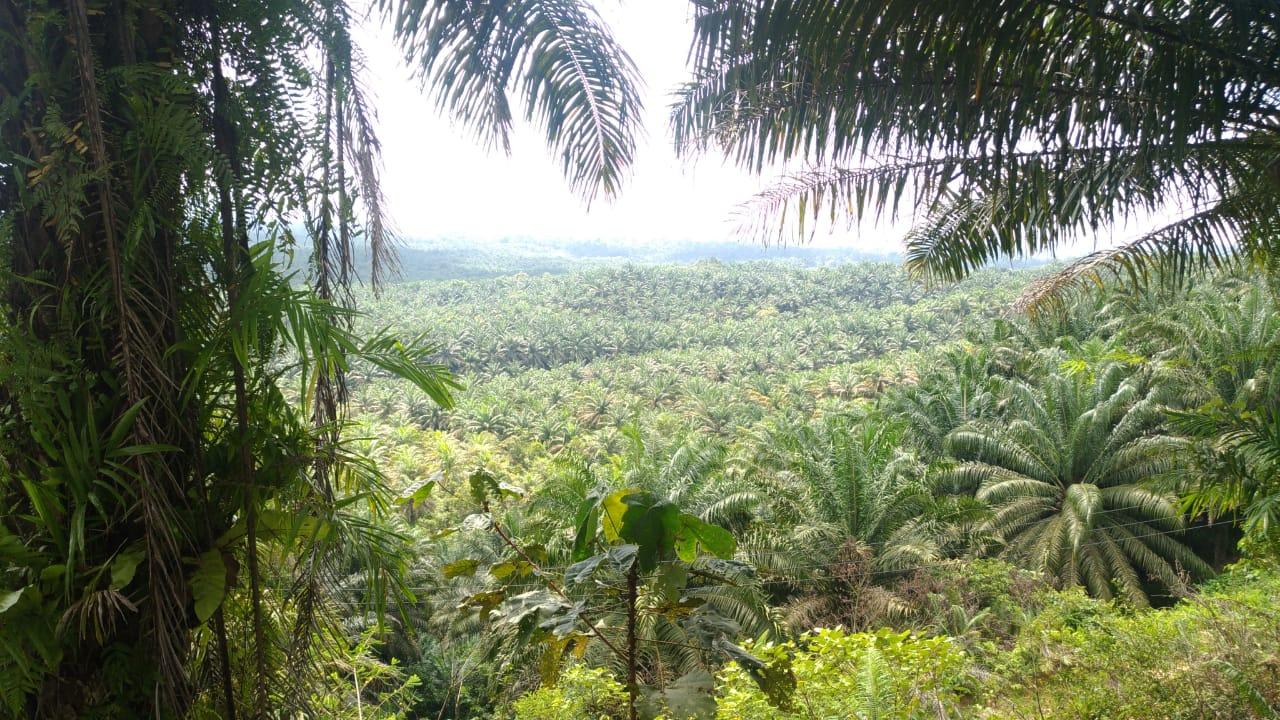
More
Is the sustainable palm oil label on a slippery slope?
Still, for the purposes of the accord, Switzerland needed to settle on some kind of certification standard for importers. To solve this problem, State Secretariat for Economic Affairs (SECO) commissioned a study to assess different certification schemes on the market to ensure the “best will be chosen”. This task was handed to a team comprising the Federal Office of the Environment, the World Wildlife Fund and a representative of the Swiss Palm Oil Network which includes importers, supermarkets and companies.
They assessed five different certification schemes: Round Table on Sustainable Palm Oil (RSPO), Rainforest Alliance Sustainable Agriculture Standard (RASAS), International Sustainability and Carbon Certification (ISCC Plus), Palm Oil Innovation Group (POIG) and Bio Suisse. In the end SECO chose what they felt were the four best versions that will be applicable to all imports: RSPO Identity Protected, RSPO Segregated, ISCC Plus Segregated and POIG combined with RSPO Identity Protected or Segregated.
If a Swiss palm oil importer meets any one of these four certification schemes, then they will benefit from the reduced tariff. In addition, preferential imports as part of these quotas will also have to be shipped in 22-tonne tanks to ensure that the origin of the palm oil can be traced back along the supply chain.
It is worth noting that the Swiss government will have to sign off on the sustainability norms and how they will be verified via an ordinance that will come into force at the same time as the FTA. The implementation procedure will also be sent around for public consultation first, which means there is potential for changes.

More
Why little Switzerland matters for the survival of tropical forests
Sanctions for violation
How will violations of sustainability criteria under the free trade agreement be identified and punished?
SECO says that Swiss customs authorities will check whether the importer holds the required authorisation (i.e., sustainability certification) at the time of customs clearance. Consignments can also be checked again at random or on the basis of suspicion.
SECO also states that in the event of any violations, customs officials can “demand the difference in customs duties and, where appropriate, penalise the importer in accordance with the current legislation”.
The deal makes reference to Article 14 of the Swiss Federal Act of administrative criminal law, which penalises violators with “imprisonment for a maximum of one year or a fine of up to CHF30,000”. The same law also makes provisions for larger fines under other special laws. For example, Article 118 of the Swiss Customs Law states that “a fine of up to five times the amount of customs duties shall be imposed on anyone who intentionally or negligently evades customs duties”.
The mechanisms for sanctions may be in place, but their efficacy depends on the resources allotted for additional checks at customs. It is also worth noting that some palm oil enters Switzerland via other European countries, like Germany and The Netherlands. However, unlike direct imports from Indonesia these “European” imports will not be eligible for discounted tariffs.
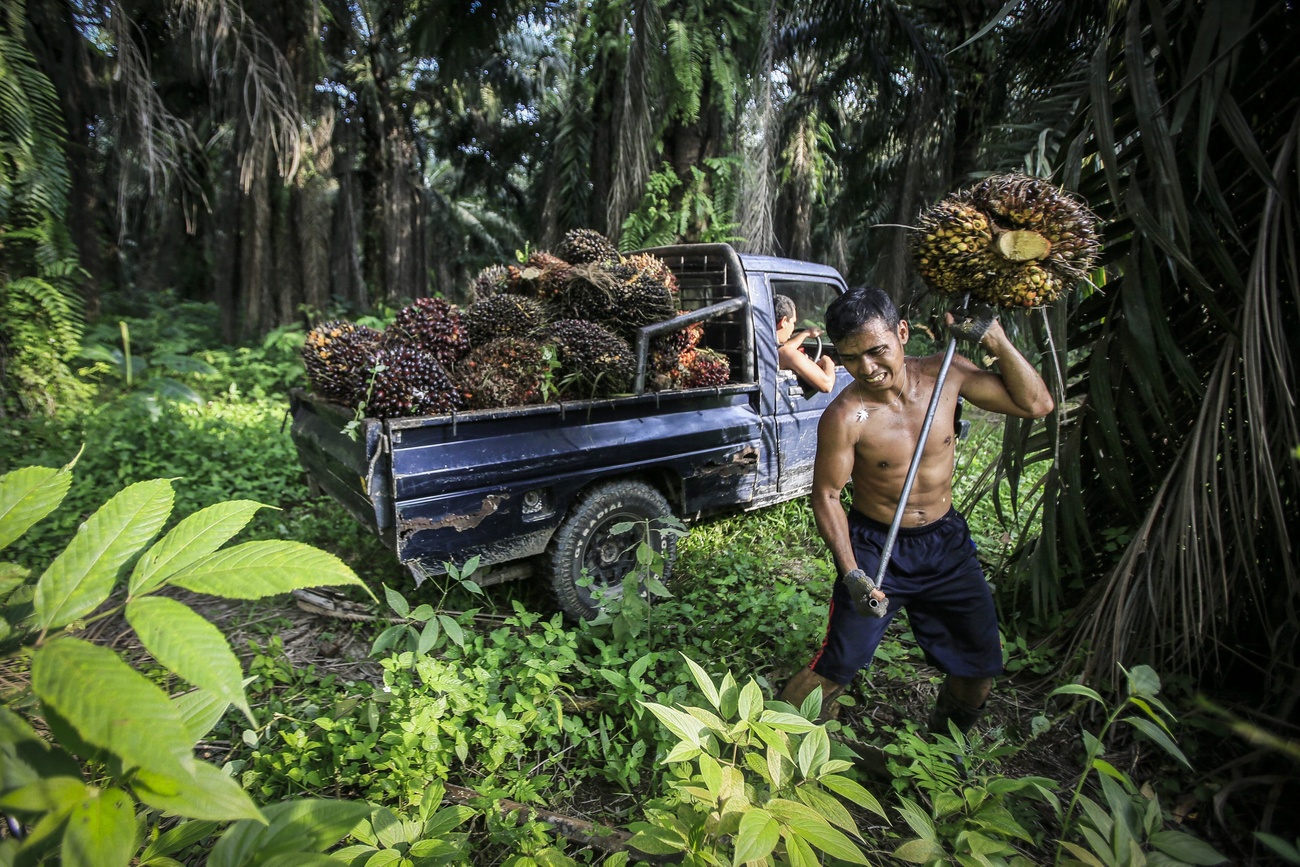
More
‘In Indonesia palm oil is bigger than watchmaking is for Switzerland’
Will imported palm oil have no effect on deforestation in Indonesia?
The Swiss government has laid out mechanisms for both verification and sanctions in case of violations of the sustainability criteria – but will these criteria actually help to reduce palm oil-related deforestation in Indonesia? The referendum committee claims they will not.
The campaigners may have a point, not necessarily because of any deficiency in the measures planned, but rather as a result of Switzerland’s tiny footprint when it comes to Indonesia’s palm oil exports. Of the almost 24,000 tonnes of palm oil imported by Switzerland in 2019, only 35 tonnes (0.1%) came from Indonesia. That year Indonesia exported over 37 million tonnes of palm oil, meaning that Switzerland accounted for less than one tonne out of every million tonnes of palm oil exported by the world’s biggest palm oil producer.
However, SECO has admitted that “Indonesia may gain market share in the long term thanks to the agreement”. But even if that is the case, overall demand is stable and most palm oil imported into the country is already certified as sustainable, according to SECO. In other words, it is unlikely that certified palm oil from Indonesia will replace so-called “dirty” imports from other producers, such as Malaysia.
Verdict: (Mostly) True
Even if Swiss importers succeed in reaching the maximum quota of 12,500 tonnes a year that can benefit from reduced tariffs, this would still account for only 0.03% of Indonesia’s palm oil exports (assuming 2019 levels). In other words, even with the best verification systems in place and harsh sanctions for violators, the trade deal would likely play a negligible additional role in protecting Indonesia’s forests and people, given the small quantities of the country’s palm oil imported by Switzerland.
Of course, one cannot exclude the symbolic significance the move to exclude palm oil from the free trade deal could have. Indonesia is already fighting a European Union ban on the use of palm oil as biofuel by 2021 and can ill afford another setback on the continent, however small. But the fact is that it is impossible to measure the impact of symbolic actions.
Links
Government information sheet on palm oil (French)
Free trade agreement text
Website of the referendum committeeExternal link

More
Fact checks by SWI swissinfo.ch: How we work

In compliance with the JTI standards
More: SWI swissinfo.ch certified by the Journalism Trust Initiative











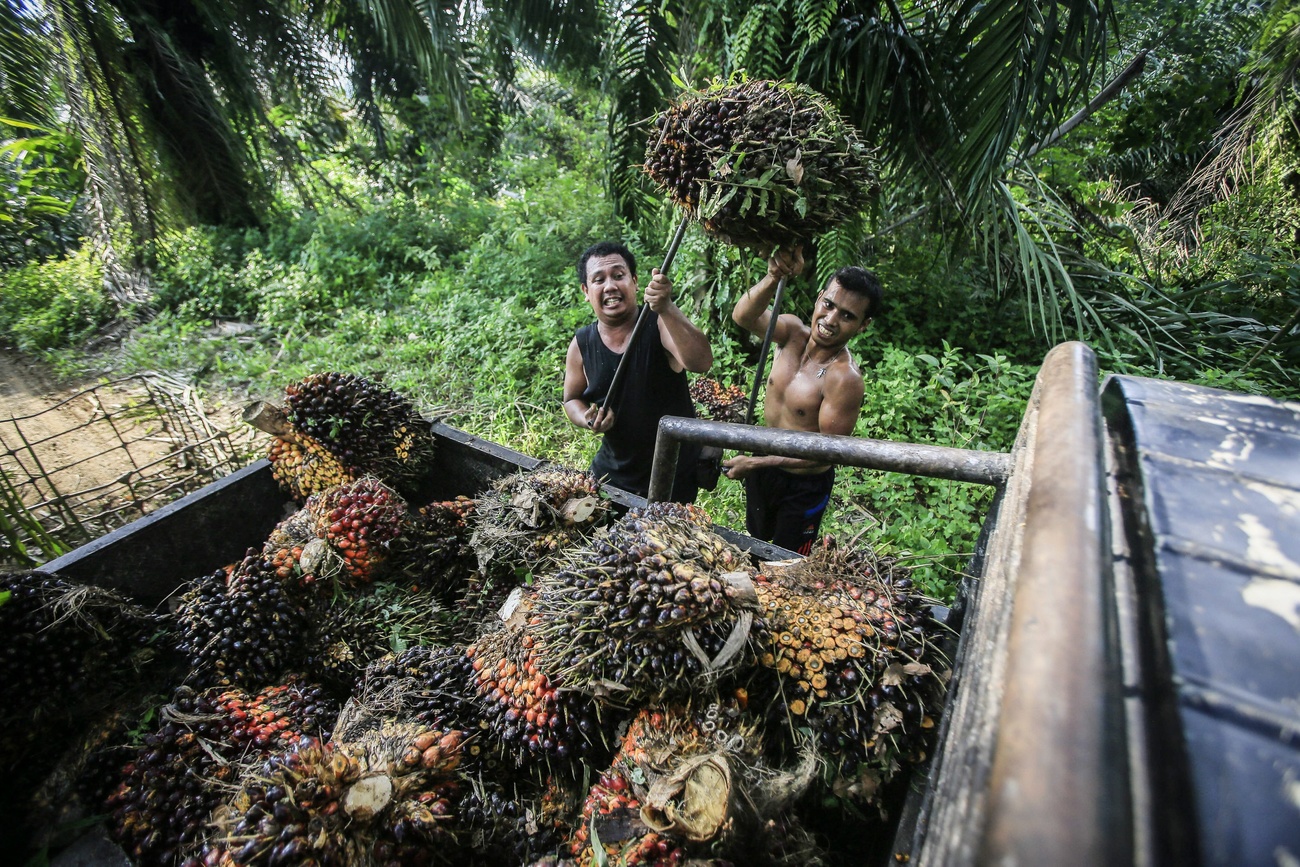
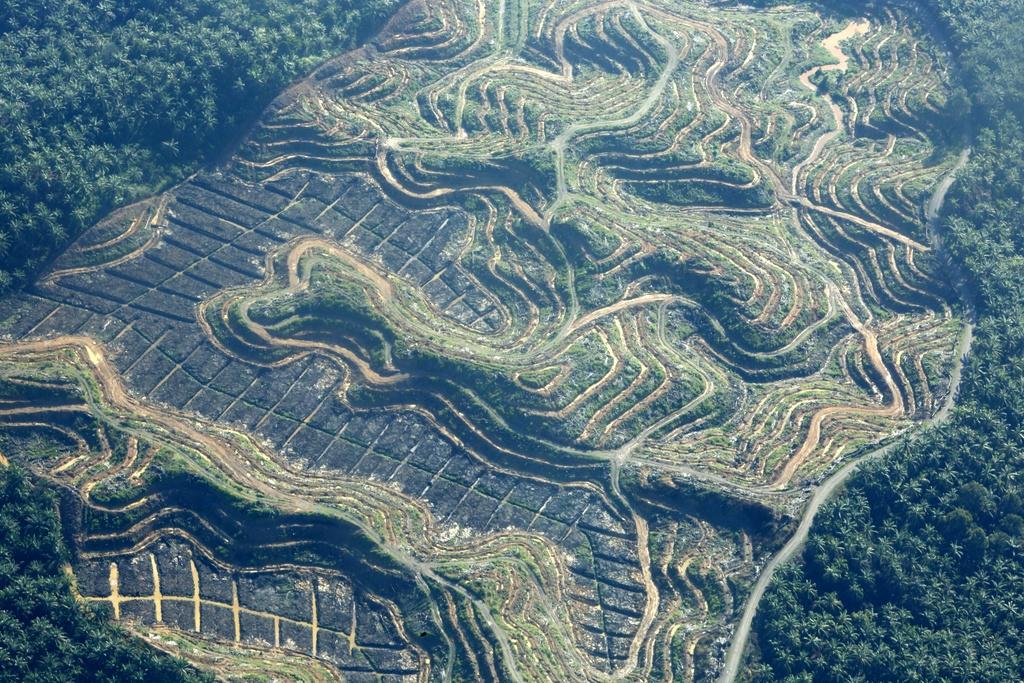
You can find an overview of ongoing debates with our journalists here . Please join us!
If you want to start a conversation about a topic raised in this article or want to report factual errors, email us at english@swissinfo.ch.